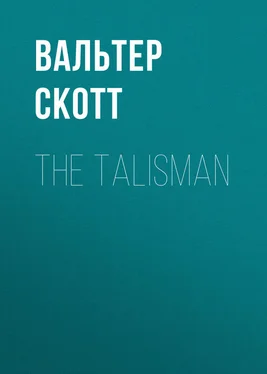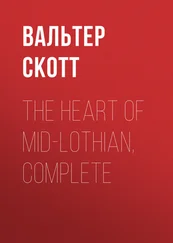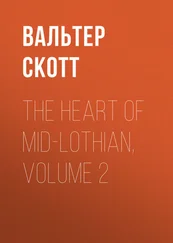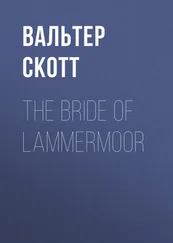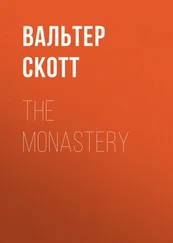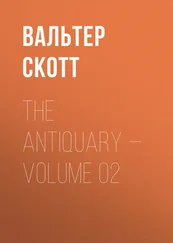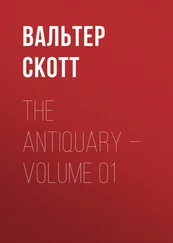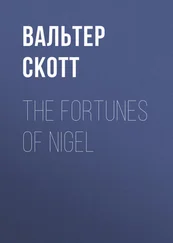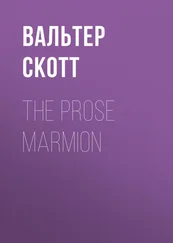Вальтер Скотт - The Talisman
Здесь есть возможность читать онлайн «Вальтер Скотт - The Talisman» — ознакомительный отрывок электронной книги совершенно бесплатно, а после прочтения отрывка купить полную версию. В некоторых случаях можно слушать аудио, скачать через торрент в формате fb2 и присутствует краткое содержание. Жанр: foreign_antique, foreign_prose, на английском языке. Описание произведения, (предисловие) а так же отзывы посетителей доступны на портале библиотеки ЛибКат.
- Название:The Talisman
- Автор:
- Жанр:
- Год:неизвестен
- ISBN:нет данных
- Рейтинг книги:3 / 5. Голосов: 1
-
Избранное:Добавить в избранное
- Отзывы:
-
Ваша оценка:
- 60
- 1
- 2
- 3
- 4
- 5
The Talisman: краткое содержание, описание и аннотация
Предлагаем к чтению аннотацию, описание, краткое содержание или предисловие (зависит от того, что написал сам автор книги «The Talisman»). Если вы не нашли необходимую информацию о книге — напишите в комментариях, мы постараемся отыскать её.
The Talisman — читать онлайн ознакомительный отрывок
Ниже представлен текст книги, разбитый по страницам. Система сохранения места последней прочитанной страницы, позволяет с удобством читать онлайн бесплатно книгу «The Talisman», без необходимости каждый раз заново искать на чём Вы остановились. Поставьте закладку, и сможете в любой момент перейти на страницу, на которой закончили чтение.
Интервал:
Закладка:
“King Richard spake with wordes mild.
‘The gold to take, God me shield!
Among you partes [Divide] every charge.
I brought in shippes and in barge,
More gold and silver with me,
Than has your lord, and swilke three.
To his treasure have I no need!
But for my love I you bid,
To meat with me that ye dwell;
And afterward I shall you tell.
Thorough counsel I shall you answer,
What BODE [Message] ye shall to your lord bear.
“The invitation was gratefully accepted. Richard, in the meantime, gave secret orders to his marshal that he should repair to the prison, select a certain number of the most distinguished captives, and, after carefully noting their names on a roll of parchment, cause their heads to be instantly struck off; that these heads should be delivered to the cook, with instructions to clear away the hair, and, after boiling them in a cauldron, to distribute them on several platters, one to each guest, observing to fasten on the forehead of each the piece of parchment expressing the name and family of the victim.
“‘An hot head bring me beforn,
As I were well apayed withall,
Eat thereof fast I shall;
As it were a tender chick,
To see how the others will like.’
“This horrible order was punctually executed. At noon the guests were summoned to wash by the music of the waits. The king took his seat attended by the principal officers of his court, at the high table, and the rest of the company were marshalled at a long table below him. On the cloth were placed portions of salt at the usual distances, but neither bread, wine, nor water. The ambassadors, rather surprised at this omission, but still free from apprehension, awaited in silence the arrival of the dinner, which was announced by the sound of pipes, trumpets, and tabours; and beheld, with horror and dismay, the unnatural banquet introduced by the steward and his officers. Yet their sentiments of disgust and abhorrence, and even their fears, were for a time suspended by their curiosity. Their eyes were fixed on the king, who, without the slightest change of countenance, swallowed the morsels as fast as they could be supplied by the knight who carved them.
“Every man then poked other;
They said, ‘This is the devil’s brother,
That slays our men, and thus hem eats!’
“Their attention was then involuntarily fixed on the smoking heads before them. They traced in the swollen and distorted features the resemblance of a friend or near relation, and received from the fatal scroll which accompanied each dish the sad assurance that this resemblance was not imaginary. They sat in torpid silence, anticipating their own fate in that of their countrymen; while their ferocious entertainer, with fury in his eyes, but with courtesy on his lips, insulted them by frequent invitations to merriment. At length this first course was removed, and its place supplied by venison, cranes, and other dainties, accompanied by the richest wines. The king then apologized to them for what had passed, which he attributed to his ignorance of their taste; and assured them of his religious respect for their characters as ambassadors, and of his readiness to grant them a safe-conduct for their return. This boon was all that they now wished to claim; and
“King Richard spake to an old man,
‘Wendes home to your Soudan!
His melancholy that ye abate;
And sayes that ye came too late.
Too slowly was your time y-guessed;
Ere ye came, the flesh was dressed,
That men shoulden serve with me,
Thus at noon, and my meynie.
Say him, it shall him nought avail,
Though he for-bar us our vitail,
Bread, wine, fish, flesh, salmon, and conger;
Of us none shall die with hunger,
While we may wenden to fight,
And slay the Saracens downright,
Wash the flesh, and roast the head.
With 0 [One] Saracen I may well feed
Well a nine or a ten
Of my good Christian men.
King Richard shall warrant,
There is no flesh so nourissant
Unto an English man,
Partridge, plover, heron, ne swan,
Cow ne ox, sheep ne swine,
As the head of a Sarazyn.
There he is fat, and thereto tender,
And my men be lean and slender.
While any Saracen quick be,
Livand now in this Syrie,
For meat will we nothing care.
Abouten fast we shall rare,
And every day we shall eat
All as many as we may get.
To England will we nought gon,
Till they be eaten every one.’”
ELLIS’S SPECIMENS OF EARLY ENGLISH METRICEL ROMANCES.
The reader may be curious to know owing to what circumstances so extraordinary an invention as that which imputed cannibalism to the King of England should have found its way into his history. Mr. James, to whom we owe so much that is curious, seems to have traced the origin of this extraordinary rumour.
“With the army of the cross also was a multitude of men,” the same author declares, “who made it a profession to be without money. They walked barefoot, carried no arms, and even preceded the beasts of burden in their march, living upon roots and herbs, and presenting a spectacle both disgusting and pitiable.
“A Norman, who, according to all accounts, was of noble birth, but who, having lost his horse, continued to follow as a foot soldier, took the strange resolution of putting himself at the head of this race of vagabonds, who willingly received him as their king. Amongst the Saracens these men became well known under the name of THAFURS (which Guibert translates TRUDENTES), and were beheld with great horror from the general persuasion that they fed on the dead bodies of their enemies; a report which was occasionally justified, and which the king of the Thafurs took care to encourage. This respectable monarch was frequently in the habit of stopping his followers, one by one, in a narrow defile, and of causing them to be searched carefully, lest the possession of the least sum of money should render them unworthy of the name of his subjects. If even two sous were found upon any one, he was instantly expelled the society of his tribe, the king bidding him contemptuously buy arms and fight.
“This troop, so far from being cumbersome to the army, was infinitely serviceable, carrying burdens, bringing in forage, provisions, and tribute; working the machines in the sieges; and, above all, spreading consternation among the Turks, who feared death from the lances of the knights less than that further consummation they heard of under the teeth of the Thafurs.” [James’s “History of Chivalry.”]
It is easy to conceive that an ignorant minstrel, finding the taste and ferocity of the Thafurs commemorated in the historical accounts of the Holy Wars, has ascribed their practices and propensities to the Monarch of England, whose ferocity was considered as an object of exaggeration as legitimate as his valour.
ABBOTSFORD, 1st July, 1832.
CHAPTER I
They, too, retired
To the wilderness, but ‘twas with arms.
The burning sun of Syria had not yet attained its highest point in the horizon, when a knight of the Red Cross, who had left his distant northern home and joined the host of the Crusaders in Palestine, was pacing slowly along the sandy deserts which lie in the vicinity of the Dead Sea, or, as it is called, the Lake Asphaltites, where the waves of the Jordan pour themselves into an inland sea, from which there is no discharge of waters.
The warlike pilgrim had toiled among cliffs and precipices during the earlier part of the morning. More lately, issuing from those rocky and dangerous defiles, he had entered upon that great plain, where the accursed cities provoked, in ancient days, the direct and dreadful vengeance of the Omnipotent.
Читать дальшеИнтервал:
Закладка:
Похожие книги на «The Talisman»
Представляем Вашему вниманию похожие книги на «The Talisman» списком для выбора. Мы отобрали схожую по названию и смыслу литературу в надежде предоставить читателям больше вариантов отыскать новые, интересные, ещё непрочитанные произведения.
Обсуждение, отзывы о книге «The Talisman» и просто собственные мнения читателей. Оставьте ваши комментарии, напишите, что Вы думаете о произведении, его смысле или главных героях. Укажите что конкретно понравилось, а что нет, и почему Вы так считаете.
